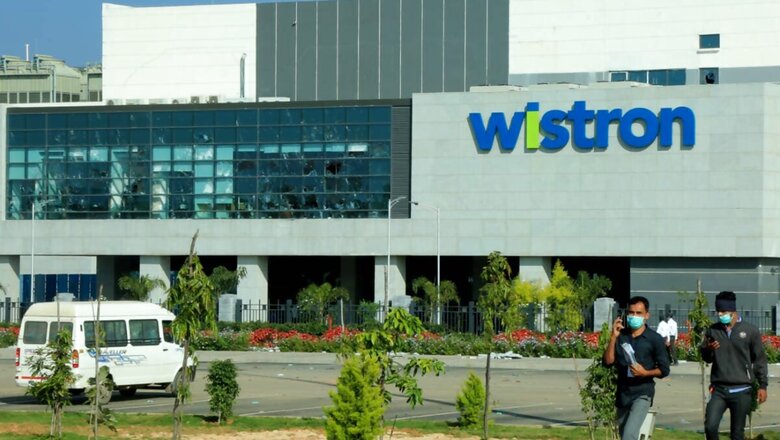
views
Earlier this month, a fiasco broke out at Wistron’s manufacturing facility in Narasapura. The incident brought to light discrepancies in the way the Taiwanese company handled its employee wages, following which Wistron’s hierarchy in Taiwan removed the company vice-president who was also overseeing its India business, and promised a restructuring of its operations. Combined with this, on December 19, Apple issued a statement, ruling that it will not assign more work to Wistron until it addresses the issues at hand.
The incident has hence raised the possibility for Apple’s two other manufacturing partners, Foxconn and Pegatron, to gain a larger share of Apple’s iPhone manufacturing orders. The two companies have already been moving to ramp up their manufacturing efforts in the country – Foxconn is expanding its manufacturing capacity in its Tamil Nadu plant, and Pegatron is in process of setting up its first manufacturing facility in the country. Both the manufacturing majors, along with the troubled Wistron, are among 16 companies that have been nominated in the Indian government’s production-linked incentive (PLI) scheme that seeks to boost India’s manufacturing sector.
However, reports indicate that the issue may not have a simple resolution of Apple taking away orders from Wistron and giving them to Foxconn or Pegatron. As part of its long term efforts, Wistron has promised an investment of Rs 2,900 crore to set up manufacturing facilities in India, and a chunk of this investment will go into specialised equipment that is required for specialised engineering tasks required for making Apple’s iPhones. While not all of Wistron’s investment has gone into catering to Apple, it does make for a significant share, and hence, it is unlikely that a manufacturer would simply be ironed out of the assembly chain.
Similar concerns apply for Foxconn and Pegatron as well. The two also have manufacturing chain capacity limitations right now, and while Foxconn already manufactures the iPhone XR and iPhone 11 – two of Apple’s most popularly selling iPhones in India right now, it may not have the immediate capacity that would be required to compensate if Wistron’s facilities are taken out of the equation.
The Wistron incident also highlights ancillary regulations that India will require to put in place, industry experts have said. These include specific labour laws that seek to protect workers at these plants, in terms of working hours, wages and other related particulars. This will be key to India’s goal of having the electronics manufacturing sector contribute up to 20 percent of India’s economy by 2025, and help prevent fiascos such as the Wistron factory vandalisation from occurring. Wistron has pegged damages to its factory at a sum of around Rs 525 crore, but assessed that since the facility is a new production line and output is still limited, the damages may not have significantly impacted the business revenue in the immediate future.
For now, it will be interesting to see if Foxconn and Pegatron stand to make short term gains if Wistron is not sanctioned to take new orders from Apple again. An Apple India official has confirmed to News18 that while Wistron is being suspended from taking new businesses from the Cupertino giant for now, it will still see through existing manufacturing orders that it already has in India. All things considered, the chances of the impact being widespread remains limited, industry experts say, since the volume of iPhones manufactured in India is still limited. However, any move in this sector in the coming days would have a significant impact in setting precedent for India’s nascent electronics manufacturing industry.
Read all the Latest News, Breaking News and Coronavirus News here




















Comments
0 comment